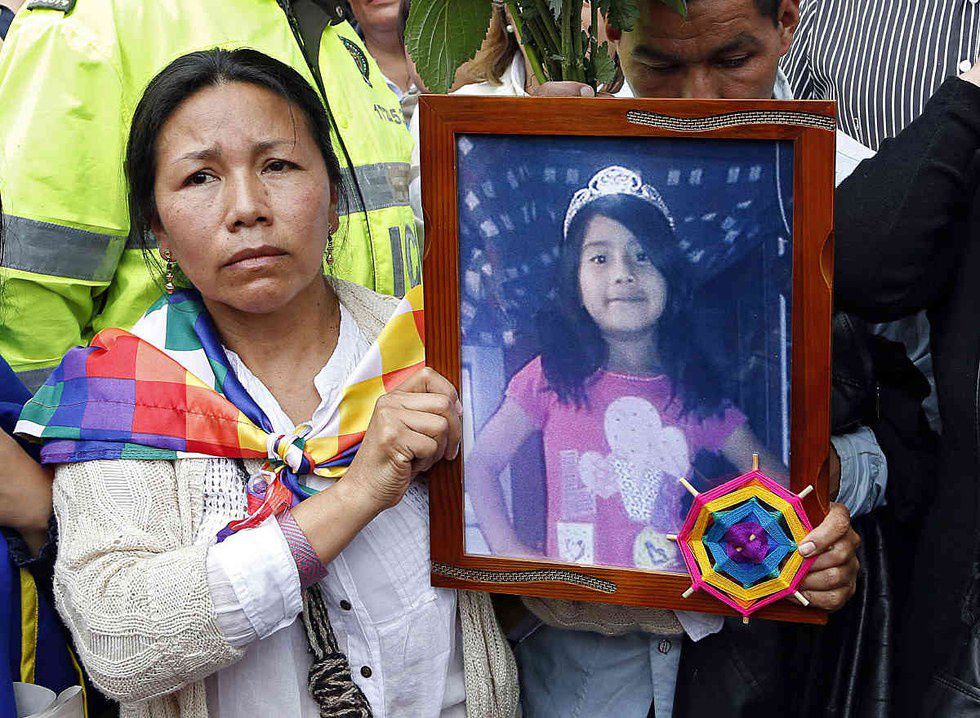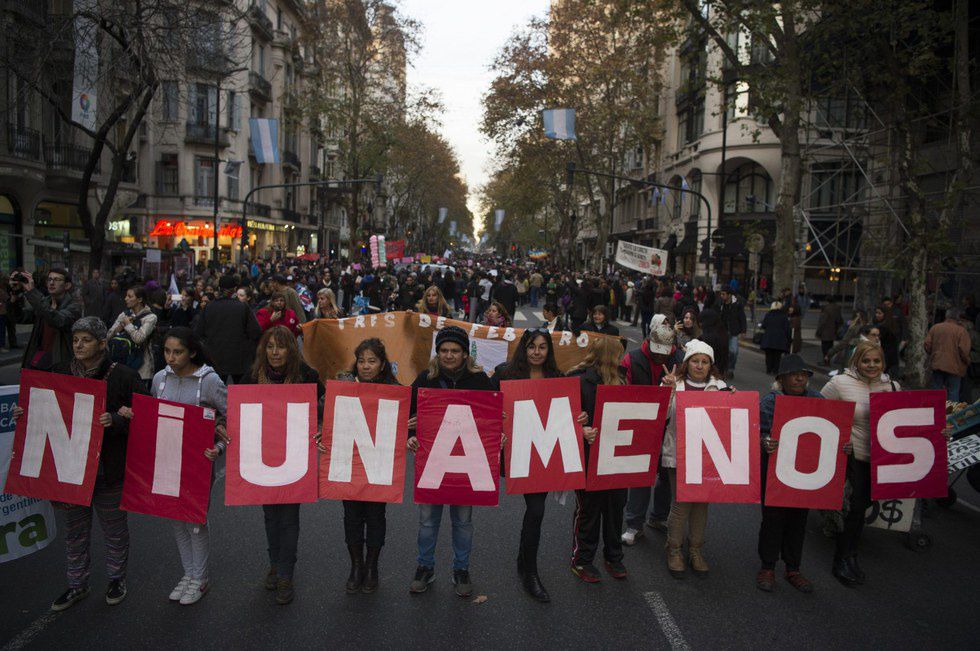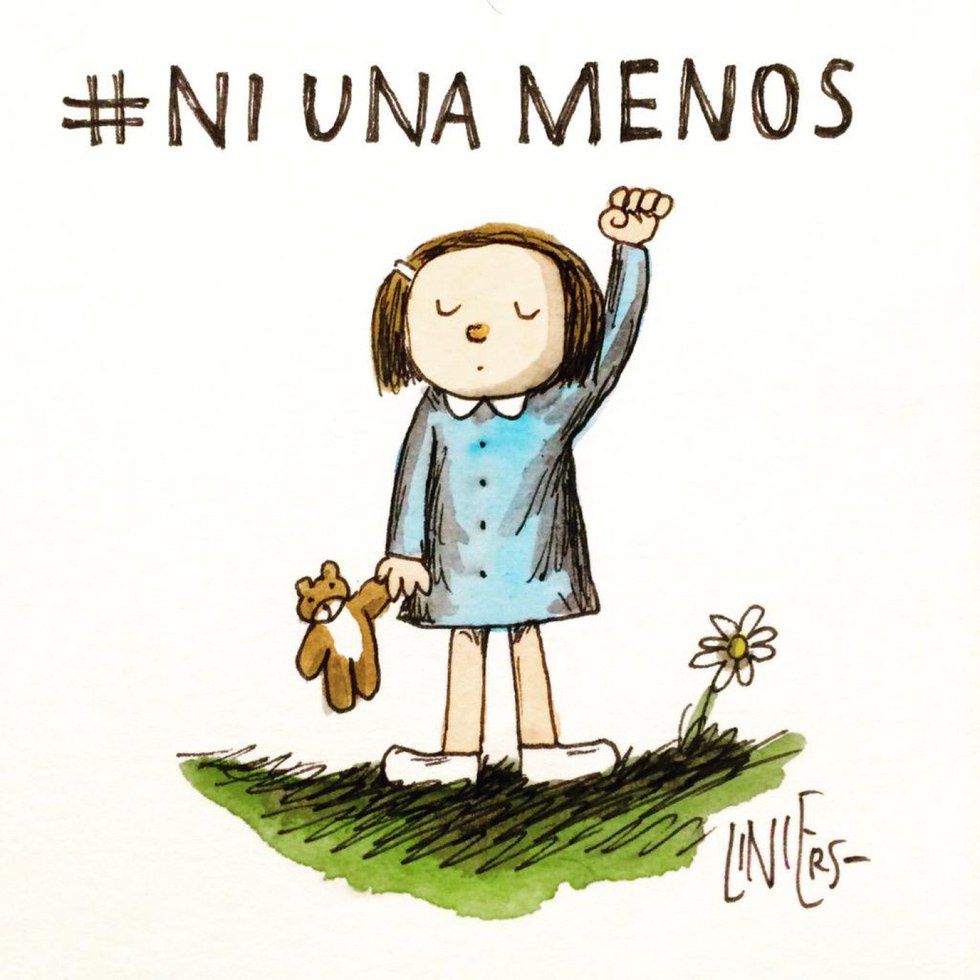Yuliana Andrea Samboni Munoz was founded dead in the capital of Colombia with signs of physical and sexual abuse on December 4th. Her family had moved from the indigenous town of Yanacona to Bogota in hopes to find economic stability. She was only seven years old at the time of her death.
Her body was found in an apartment of an exclusive neighborhood in the capital covered in bruises and multiple visual marks. The following week, the Instituto Nacional de Medicina Legal, confirmed in a press release that bodily fluids found in Yuliana’s body belonged to Rafael Uribe Noreuga which proved that she was sexually abused in addition to being physically harmed.
Examiners ruled the cause of death asphyxiation by suffocation and strangling and obvious signs of sexual violence. Uribe, who is a member of a prominent family in Bogota, was arrested at the hospital the following Tuesday morning after his family members contacted the police. Uribe was transported to the hospital on the night of the attack for a possible drug overdose (cocaine and opiates) and was interned for psychiatric evaluation. Uribe has been charged with aggravated femicide, torture, kidnapping and violent carnal access.
The accident has caused an uproar of a nation upset with the standards of respect, and equality that women and girls receive in all Latin America. Per the United Nations, 66,000 women and girls are killed violently on a yearly basis. Of the top 25 countries where femicide (the killing of women based on their gender), over half of the countries are in Latin America, with El Salvador topping the list. From domestic violence to human trafficking or gang related violence, Latin America has become a region of the world where another dead girl or woman by the hands of an abuser, family figure, or superior is unfortunately becoming a norm.
In Sao Paolo, Brazil, every 15 seconds a woman is sexually assaulted. In Argentina, every 30 hours a woman is killed just for being a woman. In Colombia, husbands, boyfriends, and ex-lovers attack their female partner by throwing acid on their bodies, faces, or hair as a means of retaliation for disagreements, defiance, or jealousy. Since 2012, there has also been a spike in women being impaled to death by an object or empalada. It is as gruesome as it sounds. Spikes, sticks, wooden stakes are inserted by force into a women’s vagina or rectum and in many cases resulting in death. In Argentina, Lucia Perez died in October and in Colombia, Dora Lilia Galvez died in November, both from brutal sexual violence attacks that mirrors the actions of an animal. Both died from the assaults. Lucia was 16 and died from the blunt force trauma to her vaginal cavity after suffering a heart attack. Dora was 44 and was raped, impaled, and burned in her own home by her attacker, she later died in the hospital.
These are just three incidents that have occurred in the past three months that have garnered wide spread media attention for the horrendousness and atrocious way that these females have died. In Latin America, a movement known by its banners and hashtag has taken to the streets and the internet to vocalize the anger and disgust that women across the Americas feel towards the acts of violence based on gender. Ni Una Menos began in Argentina in 2015 as a collective chant against chauvinistic violence in one country, but the never-ending violence against women has spread Ni Una Menos across borders throughout South America and it is becoming the unifying force against gender violence. What began as an outcry from journalists, artists, and activist in Argentina, has become a platform for Latin Americans to combat and end gender motivated violence.
The FBI is working with the Colombian government to conduct DNA tests as scientific evidence for Yuliana Samboni’s trial as well as gain access to the communication files of Rafael Uribe Noruega. Rafael siblings, Catalina and Francisco, have also been implicated in the crime and charged with tampering with evidence. Rarely have the Colombian and American government work together to in cases of sexual violence, but in exceptional cases such as this it is vital that the two countries work together to provide justice and peace to the all those affected in the case of Yuliana. The trail is set to begin on January 11th.
Hashtags surrounding the movement in Latin America:
Ni Una Menos = not one less
Yo Soy Yuliana = I am Yuliana
Vivas Nos Queremos = We want to live
Basta = enough






















